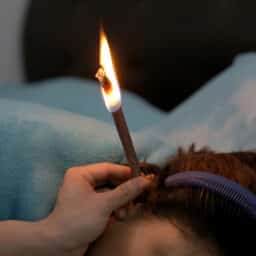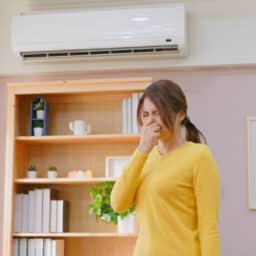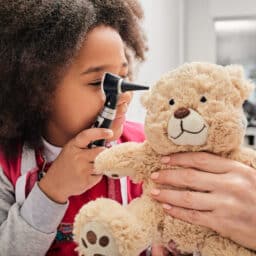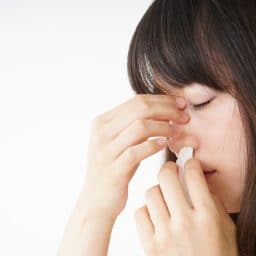Watch Dr. Worley on Fox Carolina

Dr. Mitchell Worley recently appeared on Fox Carolina to discuss the impact of wildfire smoke on ENT issues. Because of the smoke’s effect on air quality, Dr. Worley has noticed allergy symptoms starting earlier. Watch Dr. Worley’s interview and learn about ways to stay healthy during this time.
Is Ear Candling Safe?

Ear candling is a popular alternative therapy that involves inserting a hollow candle into the ear and lighting it with the goal of removing earwax or improving ear health. While many people turn to this practice for its perceived benefits, it’s important to understand whether ear candling is safe and what risks are involved. What…
Spring Cleaning and Allergies
Spring is the perfect time to refresh your home, but for those with allergies, it can also mean an increase in sneezing, itchy eyes and congestion. More than 100 million people in the U.S. experience different types of allergies each year. While cleaning can help remove allergens, it can also stir them up, making symptoms…
How Can I Help My Mold Allergy?

Mold allergies can cause discomfort throughout the year, and symptoms often worsen in environments with high humidity or moisture. For individuals sensitive to mold, exposure can lead to sneezing, coughing, itchy eyes and congestion. Fortunately, there are ways to limit exposure, which can help alleviate symptoms and make mold allergies easier to manage. How Mold…
What to Know About Tonsilitis

Tonsillitis is a common condition that affects people of all ages, though it is most frequently seen in children. It makes up approximately 1.3% of all outpatient visits to the doctor. It occurs when the tonsils, two oval-shaped tissues at the back of the throat, become inflamed due to infection. This can lead to a…
What to Know About Infant Allergies
When you’re a parent, having a sick infant can feel scary, especially when you aren’t sure what’s causing their symptoms. Infants are particularly vulnerable to illness, and their symptoms can often be challenging to interpret. For example, allergies often present with similar symptoms as a cold. Understanding what causes allergies in infants, how to spot…
How to Care for Your Child When They Have an Ear Infection

Ear infections are extremely common. In fact, according to an article published in JAMA Pediatrics Patient Page in 2020, “About 50% of all children will have at least 1 ear infection by the time they reach their second birthday.” In many cases, an ENT (ear, nose and throat) physician will take a wait-and-see approach when…
What to Do About a Lump Behind Your Ear

Lumps behind the ear can occur for different reasons. While most lumps are relatively benign, they can sometimes be a sign of a more serious condition. Lumps behind the ear may be hard or soft. Some may be tender to the touch, while others are painless. Let’s examine some of the causes of lumps behind…
What to Expect with Nosebleed Cauterization

Many people experience at least one nosebleed in their lifetime. Though they can be frightening, they usually require nothing more than leaning forward and pinching your nostrils together for a few minutes to stop the bleeding. Common causes of nosebleeds include: Colds Allergies Sinus infections Frequent sneezing Trauma to the nose However, if nosebleeds become…
